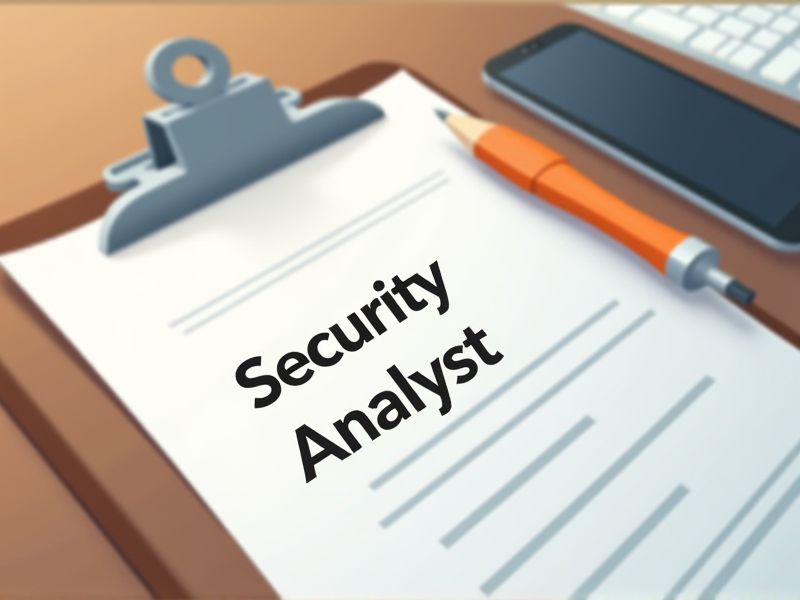
In the realm of cybersecurity, Security Analysts are tasked with identifying threats and securing systems from unauthorized breaches, making specialized knowledge essential. Certifications provide the structured training necessary to validate these skills and keep up with evolving threats. Employers often prioritize candidates with these credentials to ensure robust protection protocols are in place. Some important certifications you may need for a Security Analyst role include CISSP, CEH, and CompTIA Security+.
CompTIA Security+
CompTIA Security+ certification establishes a foundational understanding of cybersecurity concepts, which is critical for a Security Analyst role. Possessing this certification signals a well-rounded knowledge base, making candidates more appealing to employers in the cybersecurity field. Security+ emphasizes hands-on practical skills, aligning with the real-world demands faced by Security Analysts to identify and mitigate security threats. Furthermore, it serves as a benchmark for industry-recognized best practices, enabling analysts to effectively implement security measures and protocols.
Certified Information Systems Security Professional (CISSP)
A Security Analyst with a CISSP certification tends to have a comprehensive understanding of security practices, which enhances their ability to safeguard information systems. Employers often prefer or require CISSP certification, seeing it as a benchmark of expertise and commitment to the field. Possessing the certification can lead to better job prospects and potentially higher salaries due to its recognition in the industry. The rigorous CISSP exam ensures that certified individuals are well-versed in key security domains, improving their problem-solving and risk management capabilities.
Certified Information Security Manager (CISM)
CISM certification provides security analysts with a comprehensive understanding of risk management, enabling them to assess and mitigate threats effectively. It enhances their ability to align security initiatives with business goals, ensuring that security measures support organizational objectives. Security analysts with CISM are equipped with leadership skills that help in effectively managing and developing security teams. The credential reinforces their credibility in the field, potentially leading to advanced career opportunities and decision-making roles.
Certified Information Systems Auditor (CISA)
Organizations prioritize a Certified Information Systems Auditor (CISA) credential for security analysts because it validates expertise in assessing and managing IT risk. The CISA certification demands a rigorous understanding of security frameworks, enhancing the analyst's capability to protect information assets. By employing CISA-certified professionals, companies often experience stronger compliance with regulatory requirements. This certification also equips analysts with skills necessary to identify vulnerabilities and implement effective IT controls, reducing the likelihood of security breaches.
CompTIA Cybersecurity Analyst (CySA+)
CompTIA CySA+ equips security analysts with the skills to identify and combat threats, fortifying an organization's cybersecurity posture. The certification emphasizes threat detection through behavioral analysis, which enhances proactive defense measures. Analysts gain expertise in handling and mitigating incidents, crucial for continuous security monitoring. Employers value CySA+ as it validates a professional's capability to implement and oversee cybersecurity measures effectively.
Certified Ethical Hacker (CEH)
A Certified Ethical Hacker (CEH) provides essential skills for a Security Analyst to identify and address security vulnerabilities within an organization's infrastructure. With CEH training, a Security Analyst gains a hacker's perspective, enabling proactive defense strategies against potential cyber threats. Organizations benefit from a Security Analyst with CEH certification as it ensures compliance with cybersecurity standards and regulations. A Security Analyst with CEH credentials can effectively conduct penetration testing, enhancing overall security posture.
GIAC Security Essentials (GSEC)
The GIAC Security Essentials (GSEC) certification equips a Security Analyst with an in-depth understanding of fundamental cybersecurity concepts, which is crucial for identifying potential threats. This certification validates their ability to implement and manage key security technologies and practices effectively. Being GSEC certified also enhances their credibility and trustworthiness, essential for maintaining organizational security posture. Employers often prefer candidates with GSEC as it demonstrates a commitment to continuous learning and adherence to industry standards.
GIAC Certified Incident Handler (GCIH)
The GIAC Certified Incident Handler (GCIH) certification equips security analysts with advanced skills in detecting, reacting, and responding to security incidents. This credential ensures professionals have hands-on experience with common attack techniques, facilitating better preparation and response strategies. Security analysts with GCIH certification contribute to faster incident resolution times, reducing potential damage from cyber attacks. The certification also increases an analyst's credibility and marketability in the cybersecurity field, improving career advancement opportunities.
Offensive Security Certified Professional (OSCP)
Employers often require OSCP certification for security analyst roles as it demonstrates practical penetration testing skills. The certification enhances a candidate's ability to identify vulnerabilities, improving organizational security. OSCP holders usually have a stronger understanding of diverse attack vectors, leading to more effective threat mitigation. Companies see value in hiring OSCP-certified professionals as they are likely to contribute to a proactive security posture.
Certified in Risk and Information Systems Control (CRISC)
Security Analysts require the Certified in Risk and Information Systems Control (CRISC) certification because it equips them with skills to identify and manage IT risks. CRISC validates an analyst's ability to implement information system controls, ensuring organizational data security and compliance. Organizations increasingly value risk management proficiency, driving demand for CRISC-certified professionals. Holding a CRISC certification enhances career prospects by demonstrating expertise in aligning IT risk management with broader enterprise risk management.
Summary
By obtaining security certifications, you enhance your credibility and skillset in the field. Certification increases your employment opportunities as employers recognize standardized expertise. Consequently, you may experience better job stability and potential for career advancement. Achieving certifications can also lead to higher salary prospects due to validated technical competencies.
